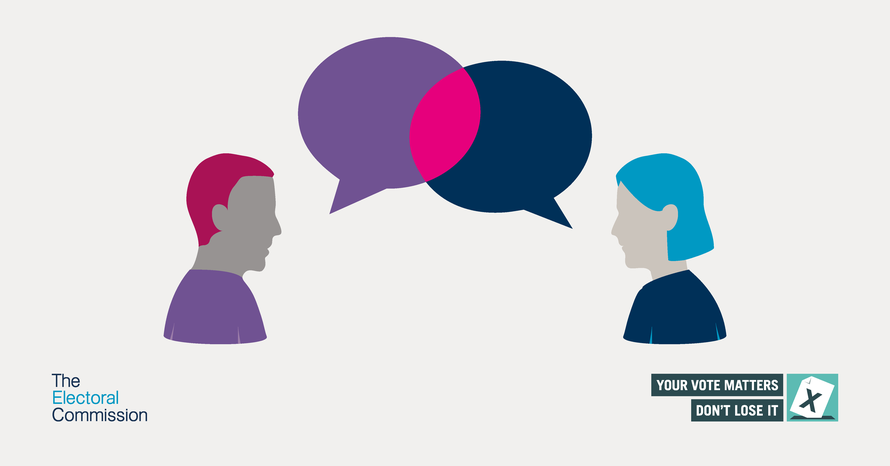Six things we learned from the Electoral Commission’s 2024 report

“Did you hear? The Electoral Commission’s 2024 report mentions Democracy Club!”
Earlier this month the Electoral Commission published its report on the 2024 local and general elections. As with previous EC reports it covers not only the administrative side of the election, but also incorporates opinion polling on public perception of the electoral process (from YouGov), and a survey of candidates (which is conducted using email addresses drawn from our candidate data!).
Here are a few pieces of interest plucked from the report and its attached YouGov polling, selected with a focus on voter information.
The public have confidence in UK elections
83% of people were either very or fairly confident that the elections were well-run. This is a significant jump from 2019, but is still below the level of confidence seen in 2015.
Respondents satisfied that the general election was ‘very or fairly well run’
| General election | Satisfied |
|---|---|
| 2024 | 83% |
| 2019 | 69% |
| 2017 | 79% |
| 2015 | 91% |
Working out what changed over the years is hard because the follow-up questions put to respondents seem to change with each poll. One difference with 2019 is a halving of the number of ‘don’t knows’ (from 12% to 6%). In 2019, 26% believed electoral fraud was a problem, dropping to 19% this time around. A negligible number of people in both years expressed concern around how votes are counted.
Read more on public confidence in the report.
Voters feel fairly well informed…
The good news: UK voters are happy with the information they received during the campaign. 83% said they found it easy to get information about parties and candidates, and 72% of voters said they felt they found enough to make an informed choice. We’ll chalk this up as a win.
…but candidates disagree.
The bad news: only 48% of candidates agreed that they were able to effectively get their views across to voters during the campaign. This is a tricky one to judge, as what matters to candidates is not necessarily what matters to voters. Democracy Club’s own user feedback suggests that a lot of people are happy as long as they know the list of names and parties which will be on their ballot paper, along with a rough idea of what the parties stand for. Certainly the majority of voters do not want to engage with the views of every single candidate on their ballot.
Significantly, frustrations seem to have come mainly from smaller parties and independent candidates. This is suggested by the most common complaints: perceived inequalities between large and small parties, media bias, and the more specific issue of the short election timescale. Problems with Royal Mail’s leaflet delivery service were another big factor, which matters because:
Traditional information sources still dominate
Only 39% of voters saw information about candidates on social media, while 63% saw leaflets or flyers. Again this contrasts interestingly with the candidate experience: 83% of candidates used social media to promote themselves, and 78% physical election literature.
Read more about election campaigning and information in the report.
We don’t know how many people used voter information websites.
Unfortunately the survey did not prompt people to say whether they had used voter information websites such as WhoCanIVoteFor (or the EC’s own site!). However, looking at the free-text responses three people mentioned WCIVF, and a fourth said they used “a website where they have information about all candidates via postcode (can’t remember what it’s called)”, which we probably had a hand in. Other sites mentioned included Vote For Policies and various tactical voting sites, most of which used or linked to our services in some form.
We’re in it!
The report’s first recommendation is that “awareness of the accessibility support available at the polling station should be increased”. As part of this, the Commission states:
“We will also look at whether the Election Information tool we run with Democracy Club could be used to provide information for voters about the support they can access at their own local polling station.”
This recommendation relates to a pilot we ran for the Welsh Government during the May PCC elections. As we mentioned in our election report, we used the polling station finder to provide more detailed accessibility information to voters, such as whether a station had parking or ramp access. We gathered data directly from councils, and were able to provide accessibility information for over 600 individual polling places for the May elections. A requirement for ‘information about accessibility arrangements that are in place at polling stations’ was added to the voter information platform part of the Elections and Elected Bodies (Wales) Bill in July.
Up next: the plan
The Electoral Commission must produce a new corporate plan following each general election. We’re expecting the next one to be published next spring.
The full spending returns for the general election will also be published by the EC next year.